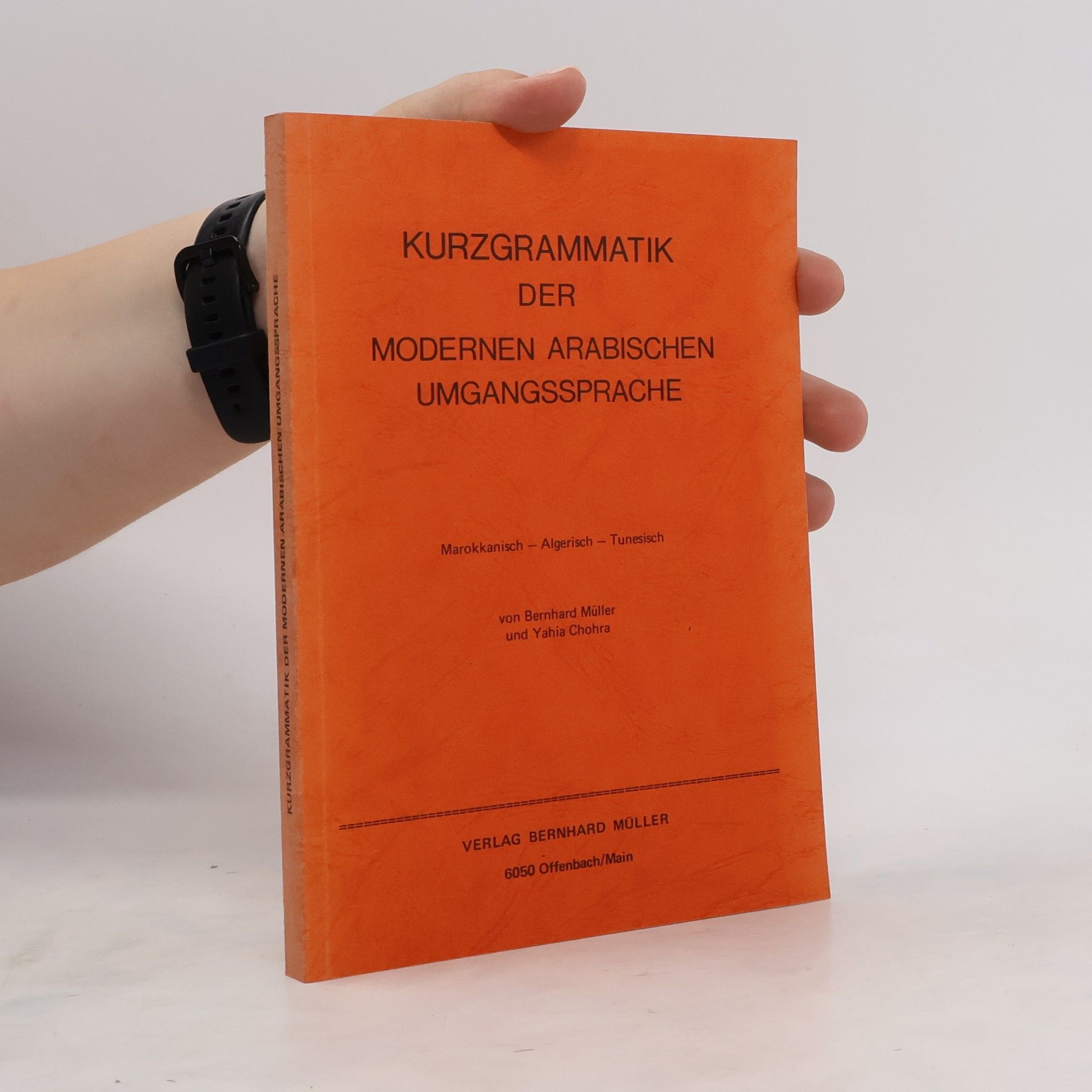Bernhard Müller Book order (chronological)






Das wichtigste Asset eines Unternehmens ist die Marke. Markenfuhrung ist daher eine wesentliche Aufgabe der Unternehmensleitung und der Prozesse in Vertrieb und Marketing inklusive Produktmanagement. Der ubergeordnete Zweck ist stets, in der Wahrnehmung der Zielgruppen relevant und zum Wettbewerb differenzierend zu sein. Die einzelnen Prozess- und Umsetzungsschritte zu organisieren und im Unternehmen zu implementieren gehort zu den Kernaufgaben des modernen Marketing- und Vertriebs-Management. Dies verlangt sowohl theoretische Kenntnisse als auch praktisches Umsetzungsgeschick. Beide Aspekte verbindet das vorliegende Werk in einer klar verstandlichen, durch praktische Beispiele anschaulichen Darstellung. Das Werk zielt auf die praktische Anwendung des Marketings- und Vertriebs-Wissens und erganzt damit unsere eher theoretischen Lehr- und Studienbucher in passender Weise. Es ist sowohl fur die akademische Aus- und Weiterbildung als auch fur den berufsbegleitenden Alltag gedacht. Bernd Muller ist Diplom-Kaufmann und leitet nach diversen Fuhrungsaufgaben u. a. bei Hidden Champions in der Industrie eine Marketing- und Vertriebs-Beratung.
Vorletzter oder wie man das Leben von unten aufrollt
- 172 pages
- 7 hours of reading
Gernot Kratzner wird von seinen Mitschülern als Loser wahrgenommen – zu dick, unsportlich und uninteressant. Mit einem Mangel an Intelligenz und Hobbys sieht er sich in der Schule als Außenseiter. Die Geschichte beleuchtet seine Herausforderungen und das Streben nach Akzeptanz in einer Welt, die ihn als hoffnungslos uncool einstuft.
Gernot Kratzner ist ein Außenseiter, der als dick, unsportlich und uninteressant gilt. In einer optimistischen Zeit wächst er auf, hat jedoch lange Zeit wenig Freude. Niemand glaubt, dass er sich positiv entwickeln wird. Ist er am Ende ein erfolgreicher Bürger oder ein trickreicher Verbrecher?
50 Jahre österreichisch-chinesische Beziehungen
urbane Überlegungen
Sozialdemokratische Außenpolitik
Historisches Selbstverständnis und aktuelle Ausblicke
Wodurch zeichnet sich sozialdemokratische Außenpolitik aus? Und: Gibt es sie noch als Unterscheidungsmerkmal gegenüber anderen politischen Strömungen? Denn während Soziales, Gesellschafts- und Beschäftigungspolitik als Kerngebiete sozialdemokratischen Wirkens und Regierens wahrgenommen werden, scheint Außenpolitik in vielen sozialdemokratischen Parteien ein wenig beachtetes Dasein zu fristen. Auf die heutige Sozialdemokratische Partei Österreichs (SPÖ), einst Heimat von Persönlichkeiten wie Bruno Kreisky (Außenminister und Bundeskanzler), trifft diese Bestandsaufnahme jedenfalls zu. Dabei ist „sozialdemokratische Außenpolitik“ kein isoliertes Politikfeld, sondern vielmehr „Friedenspolitik“, wie die SPD-Fraktion im deutschen Bundestag 2018 richtigerweise festgehalten hat.
Das Buch thematisiert die wichtigsten finanzwirtschaftlichen Gestaltungsfelder, die für international orientierte Unternehmen von Bedeutung sind. Dabei wird besonderer Wert auf eine praxisorientierte Darstellung gelegt, in dem auf Problemlagen hingewiesen wird und Lösungsansätze angeboten werden. Das Buch ist zweisprachig angelegt und soll insbesondere Bachelor- und Masterstudierenden eine Hilfe bei der Auseinandersetzung mit englischsprachigen Lehrinhalten sein. Inhalte (Auswahl): - International Trade Finance / Export-Importfinanzierung - Forms of International Fund Raising / Formen der internationalen Mittelbeschaffung - Financial Derivatives / Finanzderivate - International Trade Conflicts / Internationale Handelskonflikte - The Global Financial Crisis / Die globale Finanzkrise Zielgruppen: Bachelor- und Masterstudierende an deutschsprachigen Hochschulen
Die Neue Seidenstraße
Vision - Strategie - Wirklichkeit. Mit einem Österreich-Schwerpunkt
In diesem Sammelband nehmen erstmals die führenden China-Fachleute Österreichs (und darüber hinaus) zum Jahrhundertprojekt Neue Seidenstraße Stellung, das nicht nur auf unser gegenwärtiges Leben, sondern noch auf jenes künftiger Generationen maßgeblichen Einfluss haben wird. Europa kann geopolitische Verwerfungen durch Kooperation ersetzen, wenn es China geeint und offen begegnet. Eine neue Ära beginnt.


